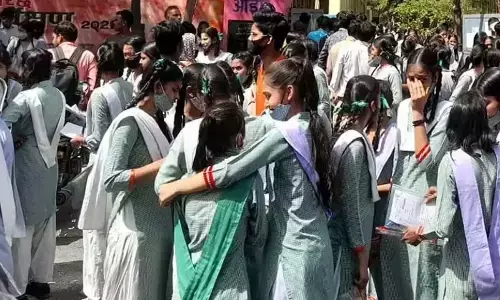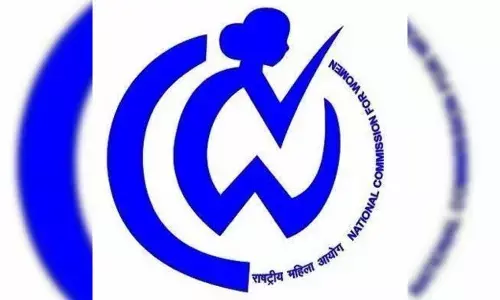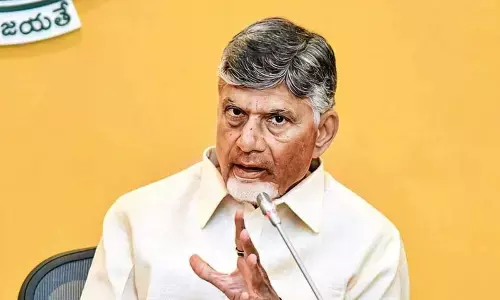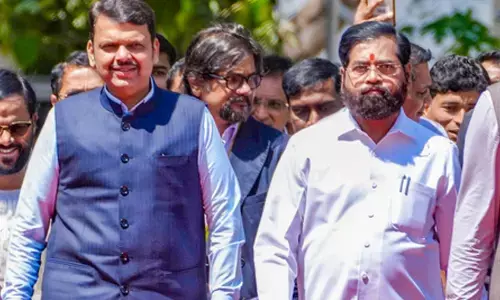Centre stokes tensions on water sharing
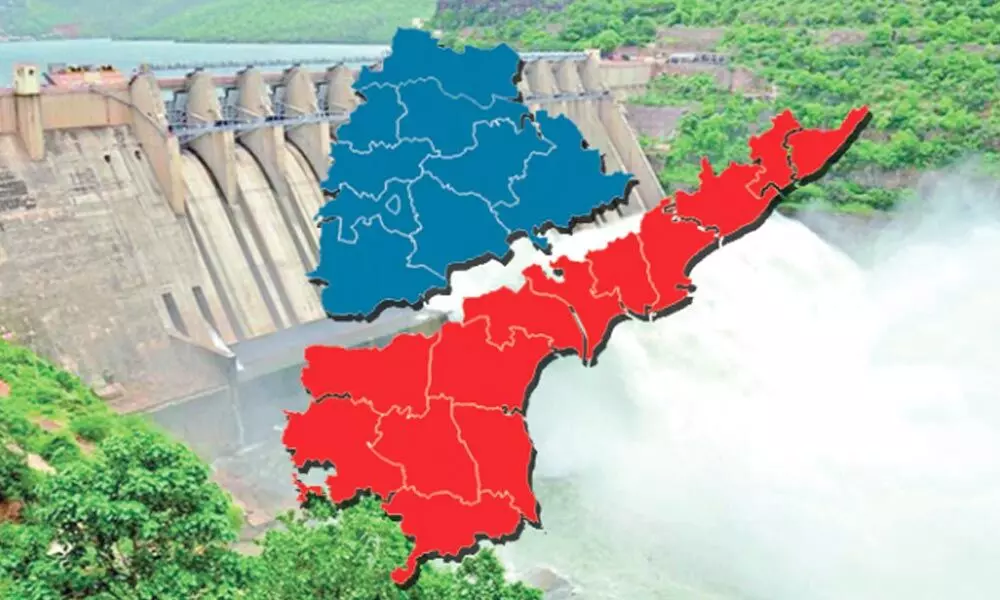
Centre's move apt on AP-TS river row
Seven years after bifurcation of Andhra Pradesh, the Centre has now issued a GO, notifying the jurisdiction of the Krishna and the Godavari River Management Boards
Seven years after bifurcation of Andhra Pradesh, the Centre has now issued a GO, notifying the jurisdiction of the Krishna and the Godavari River Management Boards. This decision of the Centre would give full powers to the management boards of both the river projects including hydel power generation units. This is likely to land both the States in a legal battle.
While Andhra Pradesh is happy over the notification issued by the Centre, the Telangana government is naturally miffed over it. It feels that the announcement of carving out a separate state was taken at midnight and, similarly, striking a blow to the new state was also taken at midnight. Both the government and the irrigation experts are seething with anger. The Chief Minister also held an emergency meeting with legal experts and the government is likely to challenge this notification in the Supreme Court.
This decision of the Centre, it feels, would have an adverse impact on the basic principle on which the agitation for separate Telangana was fought. Irrigation experts feel that the Centre has taken a unilateral decision and has not consulted the stakeholders. On the other hand, the Andhra Pradesh government maintains that they had made a demand for such a notification at the APEX-2 meeting of the KRMB. True, they made such a demand and Telangana strongly objected to it. After that no such consultations with the two States followed.
Experts in Telangana say that the Brijesh Committee report on water sharing is yet to be notified and, hence, the earlier recommendations of Bachawat Commission which had allocated 811 tmcft in united Andhra Pradesh is still in vogue. The Bachawat Commission had clearly stated that water allocation should be made project-wise. The catchment area is more in Telangana and so far, it is known as land-locked region. Only after bifurcation has the State redesigned the ongoing irrigation projects and created huge potential to utilise Krishna and Godavari waters within the existing allocations. Since the catchment area is more in Telangana, experts opine that the State should get 67 per cent. But keeping the interests of the farmers in the neighbouring state, the State had urged the KRMB to allocate water on 50:50 basis. The experts also argue that water is a state subject and hence the Centre cannot take full control.
The notification brings 35 projects in the Krishna basin and 71 in the Godavari basin under the boards' purview, empowering them to operate the headworks of barrages, dams, reservoirs, regulating structures, part of canal network, transmission lines and the power houses at the projects. This means it would now not be possible to utilise water from different projects within the Telangana state for hydel generation as was done this year.
The gazette also notified the list of unapproved projects.
The Krishna basin in Telangana includes Srisailam Left Bank Canal, Kalwakurthy, Nettempadu, Palamuru-Rangareddy, Dindi, AMRP, Bhakta Ramadasu and Thummilla. The mute question they now ask is that what will happen to the projects which are in different stages of construction. Already the State has pumped in some money into the construction. If the projects are stopped, it would result in cost escalation unless the Centre and the respective water management boards take quick decision in granting permission for these projects. How fast the Jal Shakti ministry would dispose of such cases, everyone knows.
Even Andhra Pradesh would face a similar problem in regard to Telugu Ganga, Veligonda, Handri-Niva, Muchumarri, Galeru-Nagari, Siddapuram and Guru Raghavendra which are considered illegal projects. Telugu Ganga project, as is known, was conceived during the time of NT Rama Rao and both AP and Tamil Nadu agreed to share the cost. It is almost three decades-old project. One fails to understand the logic behind stopping this project now.
The unapproved projects in Godavari basin in Telangana are: Kanthanapally, Kaleshwaram, Pranahitha, Gudem, Mukteshwar, Sitarama Ramappa-Pakhal, Tupakulagudem, Modikuntavagu, Chowtpally Hanumanth Reddy and Kandukurthi. Most of them are ongoing projects which were started in the undivided Andhra Pradesh and had later undergone some design changes. In AP, the fate of projects like Pattiseema, Purushothapatnam, Chintalapudi and Venktanagaram is in jeopardy.
The Centre has asked the two Telugu State governments to stop all the ongoing works on unapproved projects as on the date of publication of the notification until the said projects are appraised and approved as per the provisions of the said Act and in accordance with the decisions taken at the 2nd meeting of the Apex Council.
Now the big question is what will happen to the projects where works are different stage of completion? If the states stop the works as directed by the centre it is going to land both the states in trouble.
The KRMB is mandated to regulate the supply of water and power generated from the projects or components thereof having regard to the awards made by Krishna Water Disputes Tribunal (KWDT), any agreement entered into or arrangement made by the then existing State of A.P. with any other State or Union Territory and any other agreements that may be made by the co-basin States are also now under the purview of the notification. In simple terms this means that these two states will have absolutely no right on water management and will have to look towards the boards for their water needs.
Telangana Government feels that this decision goes against the spirit of federal system. Another major worry for the two states is what if the KRMB and GRMB do not take decisions in regard to water allocation and usage in time. Well, whatever the outcome technically may be, this is now going to become a major political issue starting with the Huzurabad by election and will continue till the next general elections to the Assembly in 2023.
KCR who has been adopting different strategies to see that the opposition does not get any new space in the political map of the state will now make this a major issue and will go round saying that the state would suffer due to the decision of the centre. Only few days back the minister for Industries, K T Rama Rao stated that KCR would fight even with the centre for the rights of the state in getting proper water allocation. The state is now pushed into such a situation.
Speculations are also gaining ground, that the centre was siding with Andhra Pradesh was acting upon their demands while it was not considering the plea of the Telangana. TRS circles feel that the centre was trying to indulge in sort of arm-twisting tactics. However, the party sources feel that this would now take a turn into state v/s centre. It may also cause a dent in the relationships between the two neighbouring states.


